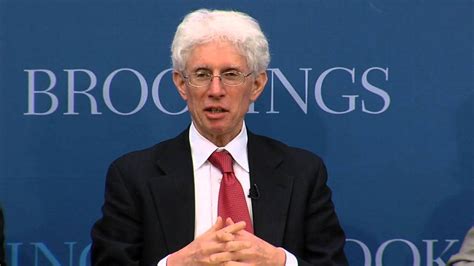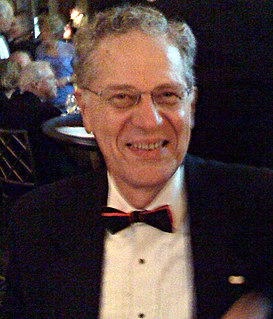A Quote by Richard Leakey
Paleoanthropology is not a science that ends with the discovery of a bone. One has to have the original to work with. It is a life-long task.
Related Quotes
Economics is a theoretical science and as such abstains from any judgement of value. It is not its task to tell people what ends they should aim at. It is a science of the means to be applied for attainment of ends chosen, not, to be sure, a science of the choosing of ends. Ultimate decisions, the valuations and the choosing of ends, are beyond the scope of any science. Science never tells a man how he should act; it merely shows how a man must act if he wants to attain definite ends.
Today, nothing is unusual about a scientific discovery's being followed soon after by a technical application: The discovery of electrons led to electronics; fission led to nuclear energy. But before the 1880's, science played almost no role in the advances of technology. For example, James Watt developed the first efficient steam engine long before science established the equivalence between mechanical heat and energy.
I'm constantly trying to work on the person that I am and work on my shortcomings, and I guess I want people to know that it's ok to be a work in progress, as long as you keep trying to figure it out. But that search and that discovery is what makes life kind of rich, and it's what makes life rich... period.
The Most Secret Quintessence of Life is an original work filled with rich, new research, relying on important primary literature which has not, until now, been plumbed and digested. In this book, Chandak Sengoopta offers both a history of hormone discovery and a chronicle of how this discovery transformed our concepts of the body and how our existing concepts of sex and sexuality, in turn, informed our concepts for understanding hormones.
The discoveries of science, the works of art are explorations - more, are explosions, of a hidden likeness. The discoverer or artist presents in them two aspects of nature and fuses them into one. This is the act of creation, in which an original thought is born, and it is the same act in original science and original art.
It is a remarkable fact that the second law of thermodynamics has played in the history of science a fundamental role far beyond its original scope. Suffice it to mention Boltzmann's work on kinetic theory, Planck's discovery of quantum theory or Einstein's theory of spontaneous emission, which were all based on the second law of thermodynamics.
The most remarkable discovery made by scientists is science itself. The discovery must be compared in importance with the invention of cave-painting and of writing. Like these earlier human creations, science is an attempt to control our surroundings by entering into them and understanding them from inside. And like them, science has surely made a critical step in human development which cannot be reversed. We cannot conceive a future society without science.





































